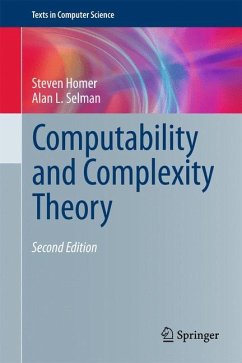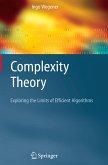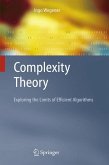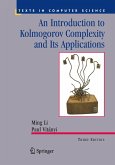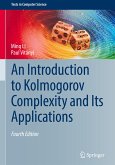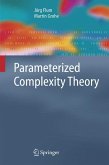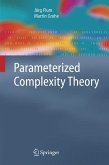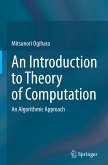This revised and extensively expanded edition of Computability and Complexity Theory comprises essential materials that are core knowledge in the theory of computation. The book is self-contained, with a preliminary chapter describing key mathematical concepts and notations. Subsequent chapters move from the qualitative aspects of classical computability theory to the quantitative aspects of complexity theory. Dedicated chapters on undecidability, NP-completeness, and relative computability focus on the limitations of computability and the distinctions between feasible and intractable. Substantial new content in this edition includes:
a chapter on nonuniformity studying Boolean circuits, advice classes and the important result of Karp Lipton.a chapter studying properties of the fundamental probabilistic complexity classesa study of the alternating Turing machine and uniform circuit classes. an introduction of counting classes, proving the famous results of Valiant and Vazirani and of Todaa thorough treatment of the proof that IP is identical to PSPACE
With its accessibility and well-devised organization, this text/reference is an excellent resource and guide for those looking to develop a solid grounding in the theory of computing. Beginning graduates, advanced undergraduates, and professionals involved in theoretical computer science, complexity theory, and computability will find the book an essential andpractical learning tool.
Topics and features:
Concise, focused materials cover the most fundamental concepts and results in the field of modern complexity theory, including the theory of NP-completeness, NP-hardness, the polynomial hierarchy, and complete problems for other complexity classes Contains information that otherwise exists only in research literature and presents it in a unified, simplified mannerProvides key mathematical background information, including sections on logic and number theory and algebra Supported by numerous exercises and supplementary problems for reinforcement and self-study purposes
a chapter on nonuniformity studying Boolean circuits, advice classes and the important result of Karp Lipton.a chapter studying properties of the fundamental probabilistic complexity classesa study of the alternating Turing machine and uniform circuit classes. an introduction of counting classes, proving the famous results of Valiant and Vazirani and of Todaa thorough treatment of the proof that IP is identical to PSPACE
With its accessibility and well-devised organization, this text/reference is an excellent resource and guide for those looking to develop a solid grounding in the theory of computing. Beginning graduates, advanced undergraduates, and professionals involved in theoretical computer science, complexity theory, and computability will find the book an essential andpractical learning tool.
Topics and features:
Concise, focused materials cover the most fundamental concepts and results in the field of modern complexity theory, including the theory of NP-completeness, NP-hardness, the polynomial hierarchy, and complete problems for other complexity classes Contains information that otherwise exists only in research literature and presents it in a unified, simplified mannerProvides key mathematical background information, including sections on logic and number theory and algebra Supported by numerous exercises and supplementary problems for reinforcement and self-study purposes
From the reviews: "The difference between this new introductory graduate textbook in theoretical computer science and other texts is that the authors have chosen to concentrate on computability theory and computational complexity theory. They motivate this focus by pointing out that most students have been introduced to the theory of automata and formal languages as undergraduates. The topics are treated in depth and in full formal detail. Explicit homework assignments are tightly integrated into the exposition of the material." --Computing Reviews "This book is intended for use in a modern graduate course in the theory of computing. ... Mainly all old classical complexity results as well as a relatively recent result that space-bounded classes are closed under complements are included into the book. The textbook is self-contained. A list of useful homework problems is appended to each chapter. The book is well written and is recommended to students as well as specialists in theoretical computer science." (Anatoly V. Anisimov, Zentralblatt MATH, Vol. 1033 (8), 2004) "This book is a solid textbook suited for one- or two-semester graduate courses on the theory of computing. ...The authors are two leading researchers in the field of theoretical computer sciences, most notably complexity theory. ... This textbook is an excellent resource and guide for those looking to develop a solid grounding in the theory of computing. Beginning graduates, advanced undergraduates and professionals involved in theoretical computer science, complexity theory and computability will find this book an essential and practical learning tool." (André Grosse, The Computer Journal, Vol. 45 (4), 2002)

